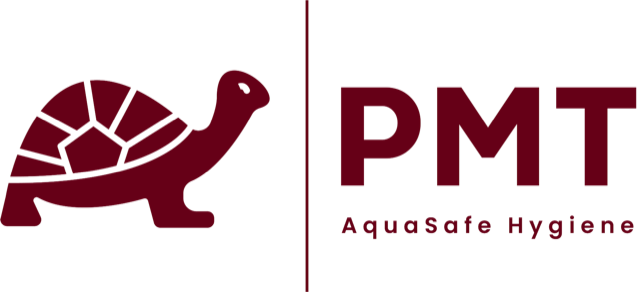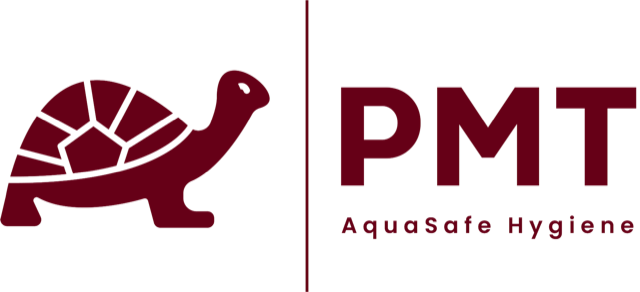
Professional Series: Manjunath Naik
This is the first of many series to follow about exceptional PH engineers. Manjunath Naik is an experienced engineer with over 15 years experience, have worked in many respected companies in India and UAE. He also holds several professional registrations and won several awards
1. Give us an introduction about yourself
My journey began in India, where I worked from 2007 to 2014, acquiring a comprehensive understanding of local industry regulations and best practices. In 2014, I embarked on a new chapter in the Middle East, where I continued to make significant contributions, leveraging my expertise to shape plumbing engineering practices in the region. My ability to adapt to diverse environments, deliver exceptional results, and stay abreast of the latest advancements has positioned me as a highly respected professional within the industry.
In recognition of my expertise and dedication to the field, I became a member of the esteemed Chartered Institution of Building Services Engineers (CIBSE) Technical Committee in 2022. This committee, comprised of industry leaders and experts, serves as a platform for collaboration, knowledge sharing, and shaping the future of plumbing engineering practices. Furthermore, my appointment as the Honorary Secretary of the CIBSE committee from 2023 onwards highlights my leadership abilities and commitment to fostering professional growth and excellence within the plumbing engineering community.
In 2023, I was honored with the Plumbing Engineer of the Year award from MEP Middle East, a testament to my outstanding achievements and leadership in the field. Additionally, my work on the RCU Headquarters project was recognized as a runner-up for Plumbing Project of the Year at both the MEP Middle East and CIBSE Awards. These accolades not only highlight my skill and commitment but also enhance my reputation within the industry. Such recognition serves as a platform for me to further influence the field of plumbing engineering, contributing to its development and advocating for innovative, sustainable practices.
I hold the following professional qualifications:
- Member Grade of the Chartered Institution of Building Services Engineers (MCIBSE)
- Member Grade of the Chartered Institute of Plumbing and Heating Engineering (MCIPHE)
- Chartered Engineer (CEng) in CIBSE
- NFPA 92 and NFPA 13 certifications, enhancing my expertise in fire protection engineering
- LEED Green Associate (LEED GA) certification, supporting my commitment to sustainability in building practices
My educational background serves as a solid foundation for my exceptional career in plumbing engineering. I hold a Bachelor’s degree in Mechanical Engineering from a renowned institution in India, equipping me with strong technical acumen and a comprehensive understanding of engineering principles. Building upon this foundation, I pursued a Master’s degree in Renewable Energy Engineering, reflecting my commitment to integrating sustainable practices and renewable energy technologies into plumbing engineering systems. This combination of academic qualifications and practical experience allows me to deliver innovative, efficient, and environmentally friendly solutions in my work.
Beyond my professional achievements, I am deeply passionate about sustainability and its integration into plumbing engineering practices. My active participation in public speaking engagements arranged by the esteemed Emirates Environmental Group for sustainability further demonstrates my dedication to raising awareness and inspiring others to embrace environmentally friendly plumbing solutions. By prioritizing sustainability in my work, I have showcased my unwavering commitment to reducing environmental impact and ensuring the long-term viability of plumbing engineering systems.
2. What is the most interest project you have worked on?
There are numerous projects that have been particularly engaging, but I would like to highlight the Royal Commission of Al Ula project in KSA.
This project is one of the highest sustainability-focused initiatives I’ve worked on. It represents an extraordinary fusion of cultural heritage and natural wonders, strategically designed to invigorate economic diversification through tourism development in the enchanting city of Madinah, Saudi Arabia.
This iconic project features two high-rise towers, a resort, and 75 villas. It presented several challenges, particularly with plant room spaces and the high-rise tower design. I introduced a vented hot water system and a vacuum drainage system. We implemented water-to-water heat pumps to generate both hot and cold water.
These solutions helped to optimize space and efficiency in the plant rooms and ensured reliable water supply throughout the high-rise towers and resort facilities.
3. What is the most innovative design of your career
Throughout my career, I have developed and implemented numerous innovative designs. Among these, I would like to highlight the rainwater design of Al Ula
One of the most innovative designs I have implemented is the Geo-Cellular Attenuation System with Passive Irrigation for stormwater management and irrigation. This solution is particularly suitable for the Middle East, where water conservation and sustainability are critical. The system utilizes geo-cellular attenuation cells to store rainwater, which is then used for irrigation through capillary action. During the summer, this stored water helps reduce the need for extensive piping and concrete storage tanks in the basement, significantly cutting down on embodied carbon and material costs. This innovative approach not only conserves water but also enhances the sustainability of the projects by minimizing environmental impact.
4. What are the challenges engineers are facing today?
As an experienced Plumbing Engineer, several challenges arise during the design stages of a project. One significant challenge is convincing clients to adopt innovative solutions over traditional technologies. Clients often prioritize capital costs over operational costs, making it difficult to promote new technologies that may have higher upfront expenses but offer long-term savings and benefits. Effective communication and detailed presentations are necessary to persuade stakeholders of the advantages of these new solutions.
Innovation in plumbing design is not the responsibility of a single party; it requires close coordination with other departments. For instance, implementing a geo-cellular attenuation system with a passive irrigation stormwater management system necessitates collaboration with the landscape team. This team must have sufficient knowledge about the system to avoid defaulting to traditional methods that may be less effective. Ensuring all stakeholders are informed and aligned on innovative approaches requires time for thorough analysis and comprehensive presentations.
5. What are the future water challenges?
Rapid urbanization exacerbates these issues, placing additional stress on water systems in cities and necessitating sustainable urban water management solutions. Technological advancements in water treatment, desalination, and recycling are essential, but these technologies must be accessible and affordable. Public awareness and education are vital for promoting water conservation and sustainable practices. Effective water policies and good governance are necessary to manage resources efficiently, ensuring transparency and strengthening institutions responsible for water management.
Additionally, implementing innovative landscape irrigation systems, such as geo-cellular attenuation systems with passive irrigation, requires coordination among different departments. Ensuring that landscape teams have sufficient knowledge about advanced systems is crucial to avoid reverting to traditional, less efficient methods. Addressing these challenges demands a coordinated effort involving innovation, policy reform, public engagement, and international cooperation to secure a sustainable and equitable water future in the Middle East’s building services and landscape irrigation sectors.
6. Advices for younger Public Health Engineer
For younger Plumbing Engineers, building a successful and fulfilling career involves mastering the basics, staying updated with technology, and embracing continuous learning. A solid foundation in fundamental plumbing principles, codes, standards, mathematics, physics, and fluid mechanics is essential. Keeping up with the latest advancements in plumbing technologies and materials, and familiarizing oneself with modern tools and software used in plumbing design and analysis, are crucial steps.
Visit us at pmt-me.com to explore our growing repository of research, technical articles, product reviews, and expert interviews. We look forward to your feedback and to continuing the conversation about the future of public health engineering.



5 Responses
Impressive career Manju
You have an impressive career Manju
Good
Keep up the great work.
Trustful insight….